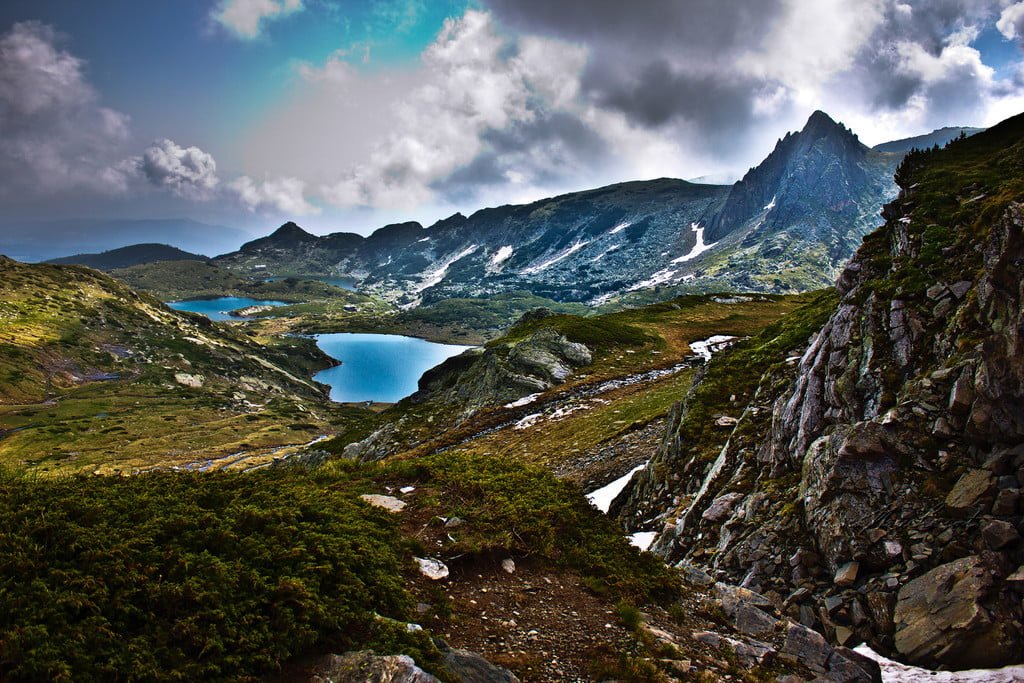Life as a foreigner in Bulgaria: My Worries vs Reality
Moving to a new country can be a whirlwind of emotions, from excitement to apprehension. Right now you’re probably frantically googling just to put an end to the incessant nagging in your head! I’m delighted that you’ve landed on our little corner of the internet.
Let’s dive into the most common worries that people have about moving to Bulgaria, and the surprising realities you’ll encounter along the way.
The Language Barrier: Surprising Accessibility
Learning a new language can be daunting enough, but throwing a new alphabet into the mix can be straight-up overwhelming! How are you going to navigate daily interactions without a firm grasp of Bulgarian?
Well you’ll be pretty surprised at just how many people speak English in Bulgaria, especially the younger generations. If that isn’t enough to ease your anxieties, many Bulgarian Universities offer Bulgarian language classes, so you’ll quickly catch the gist of the basics. If you want a head-start you could always cram in a few weeks of Duolingo before you arrive to familiarise yourself with the sounds of this Slavic language.
Navigating Public Transport: Apps and Adaptability
Getting lost in a sea of unfamiliar public transport systems is most people’s idea of hell. However, you’re young, well-informed – and definitely reading this article off your smartphone. That last part is pretty much all you need to get around Bulgaria.
With just a handful of apps in your arsenal, simplifying the maze of buses, trams, and metros is easy peasy.
Moovit and Google Maps are widely used and pretty versatile, providing information on various modes of public transport, including buses, trams and metros.
E-Tickets BG (Е-билети БГ) is very useful for buying electronic tickets. Uber is available in the major cities, but you are more likely to see the locals using TaxiMe throughout the country.
PS: don’t worry about breaking the bank, Bulgaria is one of the cheapest countries in Europe when it comes to public transport, and that includes taxi’s.
Housing Challenges: House-hunting and housemates
Compared to most of Europe, finding decent accommodation in Bulgaria is a breeze. Even the bustling capital Sofia is really affordable!
Offering listings for rental properties, including both apartments and houses – the three biggest real estate websites in Bulgaria are:
Local Facebook groups are an excellent way to meet like-minded people to team up with, and find accommodation together.
Be sure to check out student forums and on-campus notice boards, there is always somebody looking for a new housemate.
Many universities have a dedicated student housing office that are happy to assist you in finding a home either on-campus or off-campus.
No matter what your standard of living is, your best bet is to start looking at accommodation options as early as possible.
Weather in Bulgaria: Understanding the Climate
You may be scratching your head wondering what to pack for Bulgaria. The answer is everything. Shorts, yes. Winter coat… also yes.
The fact that you can ski in the winter and snorkel in the summer makes Bulgaria one of the best places to live. Being from a temperate climate myself, I found the weather to be one of the most exciting aspects about moving to Bulgaria.
You can expect a lovely 30°C/86°F in the summer, especially in the south near the Black Sea. The warm weather continues well into September, making it the perfect month for hiking.
In the Winter it will rarely dip below -15°C/5 °F. However, sub-zero temperatures are normal, with 0°C to -5°C (32°F to 23°F) being pretty average.
Be sure to pack for all four seasons to make the most out of your time in Bulgaria.
Social Integration: Embracing Connections in a New Country
Making friends as a foreigner can be daunting. The fear of exclusion would weigh heavily on anyone’s mind. Fear not though, Bulgaria is very cosmopolitan, with people from every walk of life, and every corner of the globe calling this place home.
Many Universities split classes into smaller groups early on, so meeting peers will be quite easy. Finding student groups and social clubs will also up your chances of integrating faster. Study groups are also a fantastic way to mingle with people from your course.
While the larger cities like Sofia and Varna offer a wider variety of places to meet friends, smaller cities like Plovdiv have close-knit communities of students. Wherever you decide to study in Bulgaria, you will easily find and make friends with like-minded people.

